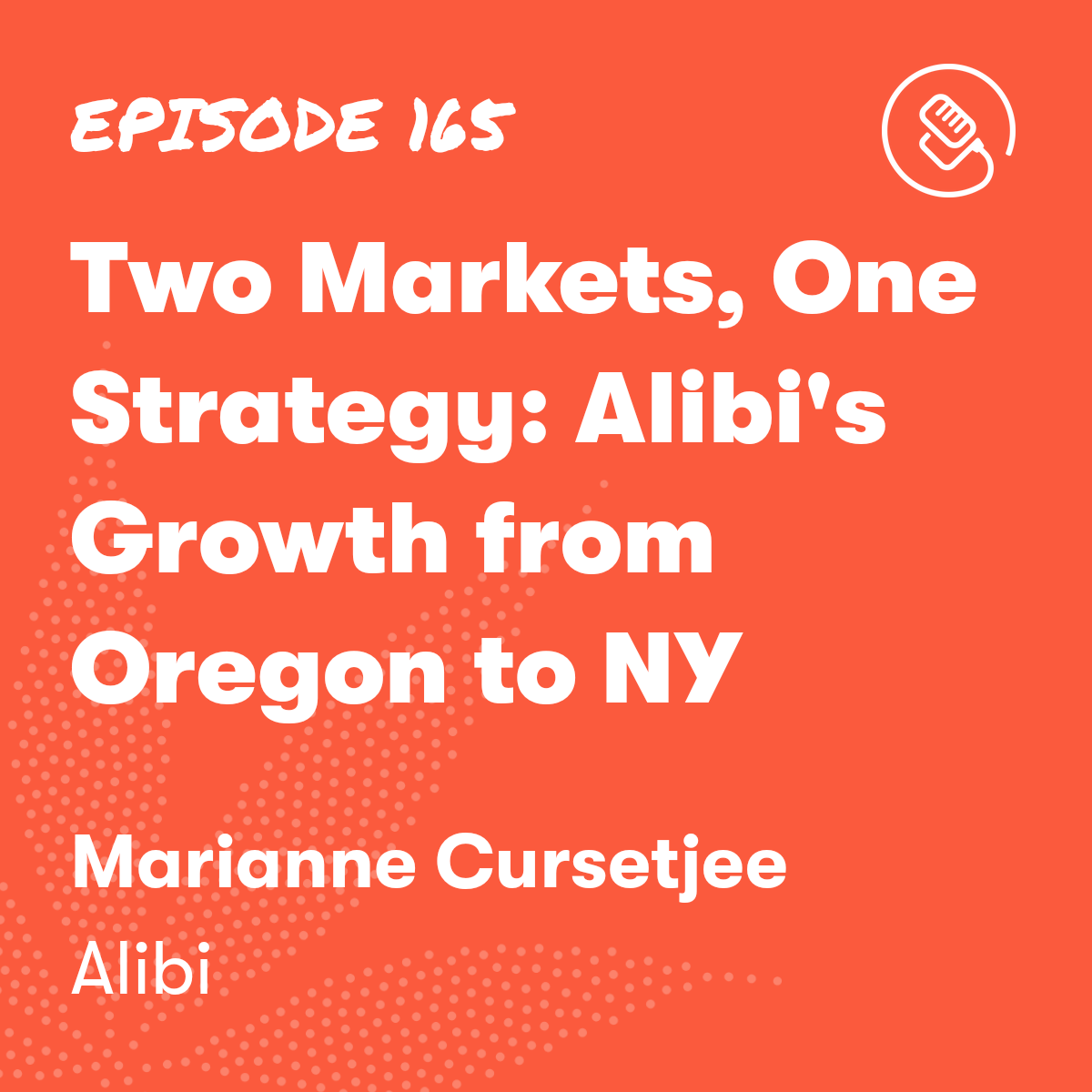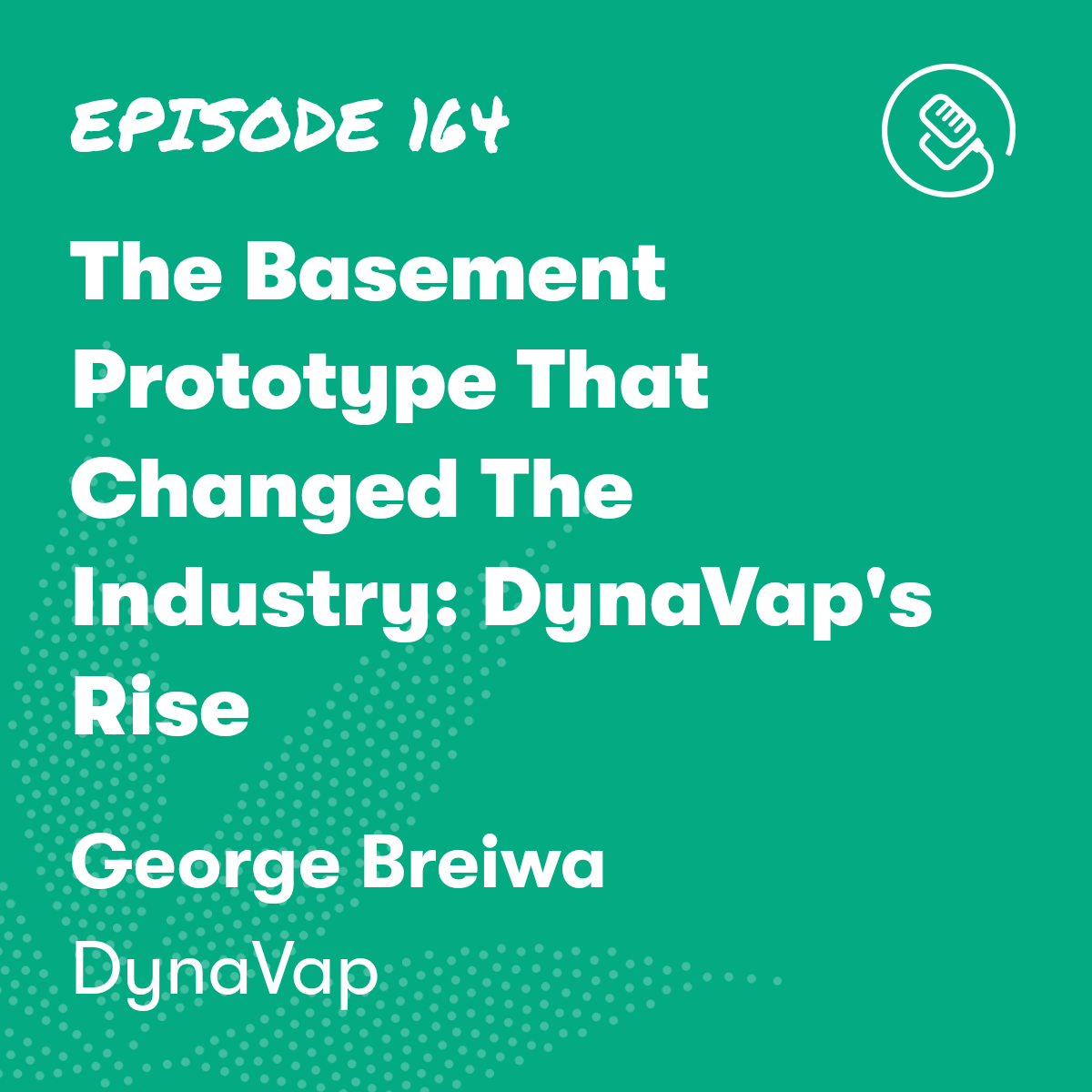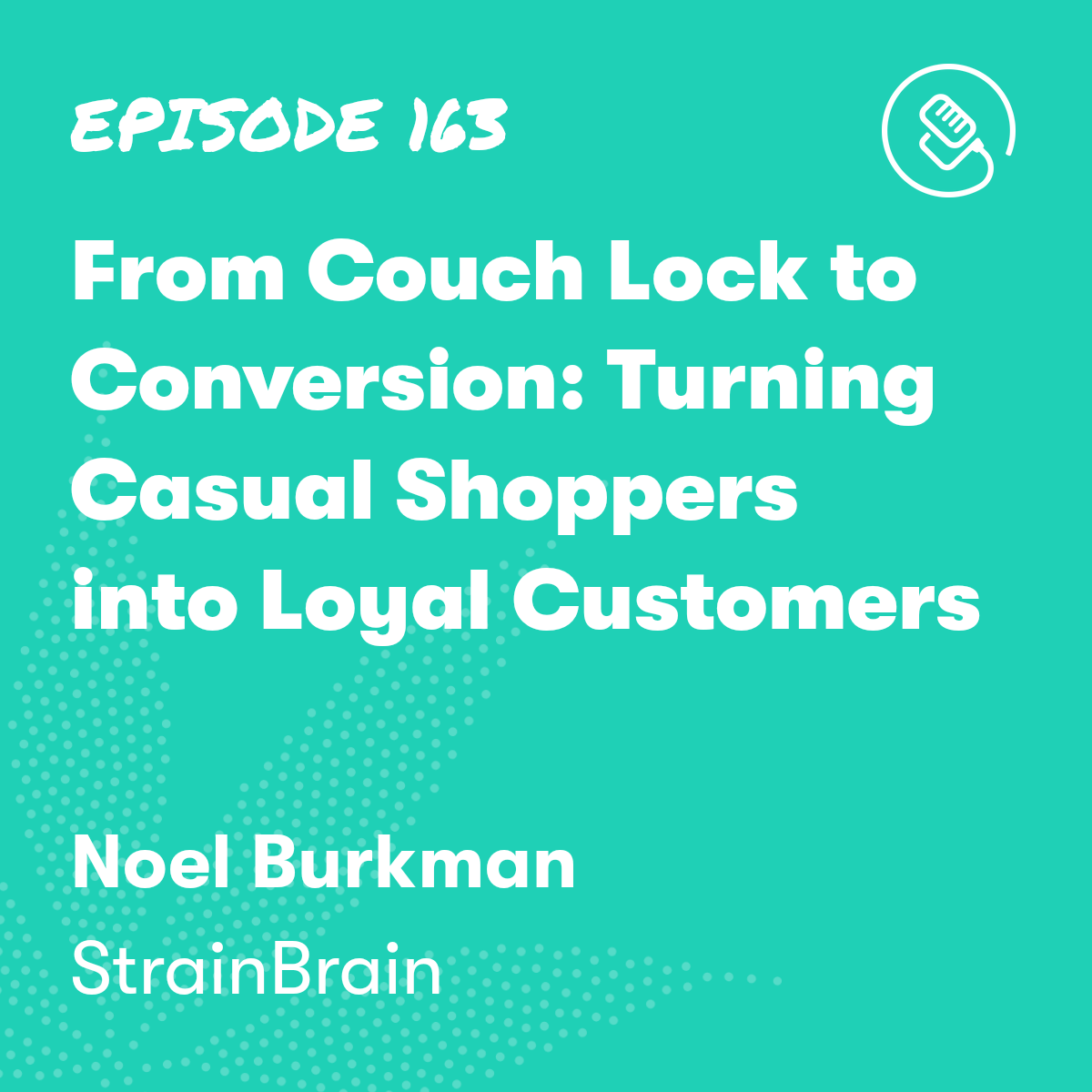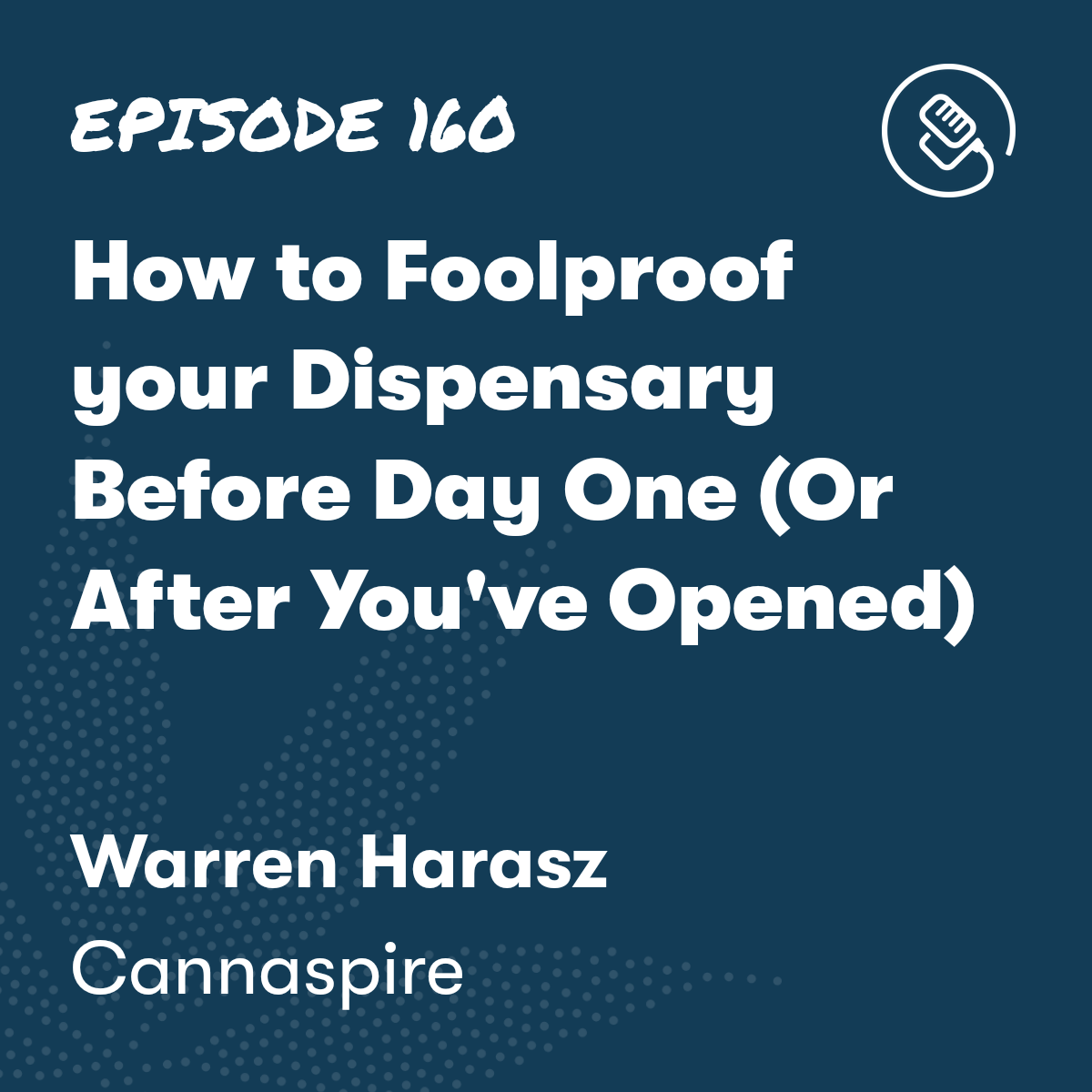

Strategies for Financial Success in the Cannabis Industry
Episode Description

Episode Transcript
Felicia Hunter: Enjoy what you do, but stay on the financial. Like, don't wait weeks and months, like every month you should be reviewing your financials. You should be speaking with your CFO to understand and look at how we could reduce taxes, reduce costs, reduce expenses, how we could look at growth and expanding.
Tom Mulhern: Welcome back to the Kaya Cast Podcast. I am so excited to share an interview that I had with Felicia Hunter who is the founder of Euphoric Accounting, located here in New York and.
Felicia had so many great insights into what cannabis businesses need to know when it comes to accounting, taxes, all of that. I am so grateful for someone that's from New York who can share those insights to these new businesses that are popping up. They're popping off. So I hope you enjoy this conversation with Felicia Hunter from Euphoric Accounting.
Tom Mulhern: Felicia Hunter CPA is an experienced accounting and finance professional with over 13 years in corporate manufacturing / asset management. She has extensive experience in all controllership functions, including transactional accounting, gap gap, accounting, cost accounting, entire month-end close and reporting and analysis.
Felicia has obtained specialized cannabis accounting training from the National Association of Cannabis Accounting and Tax Professionals and Dope cfo.
Felicia Welcome to the Kaya Cast Podcast. It is fantastic to have you here.
Felicia Hunter: you for having me.
Tom Mulhern: Let's jump right into your background. I wanna hear a bit about your background you know, your professional background, but then how did you end up in Cannabis?
Felicia Hunter: My dad owned a nightclub and whenever, during the daytime I would go, I'd go into his office and play with his receipts, I would calculate everything.
Whenever he had numbers in his bar, I'd be like, oh, okay. I'd go and count the inventory, match it back with the, so it was always ingrained in me to do something with accounting. When I was in high school, we had an accounting class and it solidified that for me.
So I decided, you know, I'll do a finance and my bachelor's and I went to St. John's for my master's in accounting and ended up in the corporate world and I learned a lot. And it set me up for where I am right now when it comes to cannabis.
And since I've been in, I've been helping
Being,clients, you know, from the pre-application phase, understanding, are they qualified financially to enter to applications, to their pre-revenue all the way through?
Tom Mulhern: Well, I want to ask you a few things about euphoric accounting before we dive into taxes and 280e. What sort of services do you provide? Like you talked about helping people from the application stage to licensing. So what do you do with euphoric accounting with your customers?
Felicia Hunter: We work on all phases. So if you are thinking about entering to I have one store and I'm thinking about opening three. We work with you in through all of these phases. We provide full service accounting, we provide CFO services advisory and consulting. So if you want all of your monthly books done, you want it reviewed, you want financial statements, we provide financial planning.
Tax planning. You think anything financial, we're doing it. Inventory, cash management, cash handling setting up your systems, you, anything. You name it, we're doing it.
Tom Mulhern: How do you help in that application phase?
Felicia Hunter: What I noticed when I was speaking to a few people who were entering the spaces, they think that, okay, I have a hundred grand and that's enough. And they don't realize all of the expenses that are needed. Coming in, depending on your state, you're needing between 3.5. To $5 million just for that first year starting off.
Cuz you have to build out your space. You have to think about your inventory, all of your licensing fees, cuz licensing fees can range from like 50,000 to a hundred thousand a year. So you have to take into these consideration all of these expenses that most people aren't even thinking about. So that's where I come in and I'm like, okay, this is what you need to be prepared for.
Because when you're gonna sit and apply, they're gonna wanna see your financials. They're gonna say, okay, do you have funding for this? Cuz they're not gonna prove you if you don't have funding.
Tom Mulhern: Is it pretty like shocking to some of those license? Yes. Like a hundred percent where they're like, oh, I've got this. I mean, that's a lot of money, like 300, $500,000. And they're like, no, no, no. You need 3.5 million.
Felicia Hunter: Cuz in an average business. You're like, I have that. I can open up, I can go to the bank. I can like, Hey, give me a bank account, give me credit cards. I can go to landlord here, get some inventory or go. But in cannabis it's so much more complicated than that. Like the licensing fees, your taxes, everything is about three to four times more than an average business.
Tom Mulhern: Staying on the licensing. Are you working with any social equity licenses and helping them?
Felicia Hunter: I would love to. I haven't as of yet, but I would love to. I am definitely open. I'm here to help anybody.
Tom Mulhern: They need the education. They need the help. They need the support, and I'm here for it because this industry has had enough challenges and they're already facing the most challenges, so why not give the support that they need?
Totally. Well, let's jump into that question that so many people have when it comes to accounting and cannabis. Tell me about 280e, like what do I need to know? What does a new license applicant or even just someone in the industry need to know about 280e?
Felicia Hunter: Right. So a little history in 280e, it reversed a tax court ruling for Edmondson versus commissioner in 1982. He sold cocaine, cannabis, anything illegal and they were like, nah, we're not allowing him to deduct anything. And so the task court decided, Hey, you know what?
We're gonna implement 280e. And 280e basically says that any expense that you have, you cannot deduct it. Anything ordinary and normal in your business that a normal business is allowed to take you are no longer. Your rent, your salaries, anything you're not allowed to take into consideration.
Tom Mulhern: What does that translate then for a dispensary owner?
Felicia Hunter: The caveat to it is that there is a section in the tax code, and it's called 4 71 C. It's a absorption method accounting, which allows you to take cost of good sold and apply it. So basically you take all of your revenue that you have and you offset it against cost of good sold.
So that reduces your tax liability. The negative is though you still have the highest tax burden compared to any other industry.
Tom Mulhern: So then when you're working with clients how do you kind of come alongside them and help them navigate, because this is, I'm getting confused. It's like, is it 280e or 4 71? Like what do you do to kind of come alongside them and help them understand?
Felicia Hunter: So it starts with being able to sit down, understand. What their business is because every business is handled differently. Your product types are different and create a strategic plan for them. We wanna understand what their goals are. We wanna prep them with tax planning. We wanna understand all of the ins and outs of their business because once we understand that, then we're able to build this full absorption, this full robust accounting system for them.
And with that accounting system, we're able to track. All of their expenses, all of their costs, categorize them into the correct category so that we could apply cost of goods sold and the absorption method to reduce their taxes.
Tom Mulhern: Be mindful of your costs. Be very mindful of your costs. Be mindful of your spaces and your expenses. You want to make sure that at all expenses. You're reducing the costs that you have, but you still wanna have quality product. So invest in your product, but reduce your expenses as much as possible when it comes to dispensaries and consumption lounges.
Felicia Hunter: When you're working with cultivators or processors, they have a little bit more that they could allocate to 4 71 C, which is the absorption method to reduce their tax liability.
Tom Mulhern: So what are some of the common challenges that businesses face when it comes to taxes and accounting in cannabis?
Felicia Hunter: Your POS system's not being set up right if your POS system is not integrated correctly. Not capturing your expenses, not capturing your discounts.
Like if someone comes into your store and they buy, bag of flower and you say, hey, this is a free pre-roll. If it's not capturing that free pre-roll, your inventory is wrong. You have to have your inventory systems and POS systems accurately.
People not understanding that the different types of taxes that affect them because people, you know, initially think, oh, we just have to pay our state.
We just have to pay federal. But we have state, federal, local, excise tax, sales tax you name it, business taxes. There's a lot of taxes, so people aren't just not aware of and cognizant of these things and having an accountant, having an advisor takes away this stress let's people say, okay, I don't have to deal with this.
You can put it on someone else.
Tom Mulhern: Well, and having an accountant that is trained in cannabis too, right? Like you can't, just have any accountant jump on there and they know what they're doing. Right? Right. They have to have people like you that are trained and understand the complexities.
Can you explain excise tasks and how that kind of impacts cannabis business owner?
Felicia Hunter: So everyone knows sales tax. It's just any goods or service that you have, you're gonna be taxed on it. Excise tax, theoretically. And for everyone, it's generally applied to like tobacco, alcohol or fuel. And essentially it's a deterrent tax. Like they don't want you to consume it, they don't want you to do it, so they're gonna put on a tax, however, But cannabis, it's not seen as a deterrent tax anymore.
It's seen as a tax to fund social programs. So, That's the good side of the tax, but the bad side of the tax is that you could be taxed on so many different ways. You could be taxed on the percentage of your THC, the percentage of your gross sales. You could be taxed on the weight of the flower.
You could be taxed at each level. So if it moves, from the cultivator to the processor, your tax, and then from the processor to the dispensary, your tax. So it all depends on your locale in your state, how you're gonna be taxed, what, and then if they're gonna do multiple tax for this exercise task, or is this gonna be one type of tax that you're subject to?
Tom Mulhern: How do you keep track of that excise tax? What you're being taxed on? Is it difficult for business owners? Is there lots of confusion?
Felicia Hunter: It is a lot of confusion and especially if your POS system is not initially set up for it. You have to make sure that when you're setting up your POS system, you know, what your locale, cuz let's say you have three dispensaries, each locale might have three different types.
So you wanna make sure you know your locale, how they want you to be taxed, and your state and how you wanna be taxed. And then you have to remit on time. You have to make sure that you're remitting every month on time. Just like how you would do your payroll taxes and your self-employment. You have to make sure you're remitting your taxes on time.
Tom Mulhern: What's some of the penalties if you're not getting your stuff in on time? If you miss a month or something, like is there pretty strict penalties in the industry?
Felicia Hunter: Yeah, unfortunately, yes. So you will get fined and you will get late fees. So why waste the money? Why give the added stress when you're allowed to just, you know, do an estimated for your state taxes, you could do estimated, but everything that you collect for your excise at the end of the month, you have to remit.
So in 15 days, make sure you're remitting that payment to your locale in your state.
Tom Mulhern: But you have to think long term. You have to think of the end and say, you know what? It's worth it. Cuz if it's going to fund social programs, you know, the hardest part is just setting up the system and then remitting it cuz you're collect the system's gonna tell you to your customer, Hey, this is what it is. And then you're like, okay, we're gonna just at the end of the month, run a report, send it over.
Tom Mulhern: Like we've, we talked about earlier the cannabis industry has been just evolving and changing and New York, this emerging market.
What do you kind of see on the horizon? Like what do you kind of anticipate in terms of taxes and regulations for the years ahead?
Felicia Hunter: Well, fingers crossed that more states decide to decouple from 280e. Cause I think states are now recognizing that it's more of a detriment than a benefit because you could still collect, you know, a sufficient tax revenue to fund social programs without, burdening businesses with, you know, 280e on both a state and federal level.
Hopefully states will also take into consideration if they're not gonna do that, giving businesses one year free, tax free holiday, just so that they can build their business and, you know, make them grow and thrive and then say, okay, you know, after your one year mark, now you have to start just to kind of build up and see.
Can you explain to me a bit cuz New York decoupled from 280e, so what does that look like for the average business here in New York? That means that when you're filing your taxes, you are not paying federal taxes on your gross profit. You're paying it just like any other business would on your net profit. So you're getting to deduct all of the goods stuff. All the things that normal businesses are allowed to deduct, you're able to deduct at the state level.
So it's just the state level, but at least when you're filing your taxes, it's just a little bit less tax burden on you. So you could invest that in your business.
Tom Mulhern: Well, and you talked a bit about technology, but how do you see technology really playing a role in compliance and taxes and, and that for cannabis businesses?
Felicia Hunter: I see a lot of businesses coming on in the tech world that are gonna benefit and make things easier. I think people have been hesitant to enter the space and now that they're seeing that it's not a bad space and it's a good space to enter. It will expand a lot of companies to come in and be like, okay, we could provide this service.
We could help with POS systems and how to track your inventory. As the years go on, we are gonna start seeing a lot of companies come in and build. Good technology that will help. Even for us accountants, we don't have good technology as of yet, so we're doing a lot of work around with what's currently available.
But there are businesses out there that are like, okay, we can come in here and it's a good space to be in and they're gonna start, you know, taking over and building stuff that's making, you know, people in this industry lives so much easier.
Tom Mulhern: Our company, Kaya Push, we do HR, payroll, all of that, but really at the end of the day, we're a compliance company because we integrate with all of the point of sale systems. Mm-hmm. To be able to make sure that your staff is staying compliant. And I think that really is, that's what your software needs to provide your technology, security, whatever, that you're staying compliant within this industry.
Felicia Hunter: And in one space to make it easier, cuz having to go to a bunch of different places makes it very complicated and unfortunately it allows for stuff to slip through the cracks.
As a business owner yourself, what advice would you give to someone that's considering starting a business in the cannabis industry? I would say be open to criticism, feedback, advice, because people who have been in the industry, they know and you want the best for yourself and they're gonna give you, you know, what they've experienced. And so you take it, be open to it. Have good advisors. When you have a good advisor on your team, whether you know, as a CFO, a lawyer, compliance officers, they're the ones that are your support system, they take off a burden so you can focus on what you truly enjoy.
And that makes it easier for you to enjoy your business and also to remain in business because that's the main thing.
And then enjoy what you do, but stay on the financial. Like, don't wait weeks and months, like every month you should be reviewing your financials. You should be speaking with your CFO to understand and look at how we could reduce taxes, reduce costs, reduce expenses, how we could look at growth and expanding.
Those are a lot of good tips. I just asked for one, but you gave me a whole bunch. So, Felicia, how can people connect with you and you? Euphoric Accounting and you know, get connected to what you guys are doing and find out more about you. Yes.
So you could come to my website. It's euphoricaccounting.com. I'm on LinkedIn. We are also on Instagram. So any which way you could shoot us a note and we will respond.
Tom Mulhern: Thank you so much for taking the time to be on the show. I had a great time andI really feel like, yeah, your, your explanation of some of those things was, was really insightful and illuminating for me, and I have these same sort of conversations a lot, so I, I appreciate what you had to share.
Felicia Hunter: Thank you for taking the time and having me on. I appreciate it.
Tom Mulhern: I talk to so many accountants for this podcast, and every single time I talk to them about you know, 280e and cannabis, it's so fascinating to see the complexities around the issue and the ways to work around it. There's no easy answer. And the best answer I've heard is that if there, if you think there's an easy answer, there's not. It's difficult, figuring out taxes and all of that. So bringing on a trained professional.
Is so, so important. And so I would encourage you to reach out to Felicia. We'll have all of the links in our bio. She's a great, great source of information. If you're a cannabis business here in New York, if you're a social equity, A business here in New York that's looking for some help, reach out to Felicia and she's here to help.
I also wanna thank you for listening to the Kaya Cast podcast, subscribing and for sharing it. Share this podcast with your friends. If you are finding value in the content that we're creating here, share it with people because there is so much confusion in this industry and we need to hear from experts like Felicia who are able to make sense of it.
So thanks again for listening to the Kaya Cast podcast and we'll see you next week.











